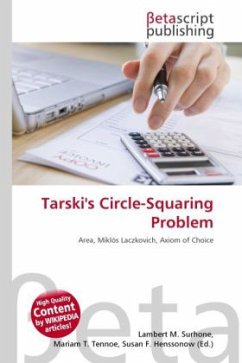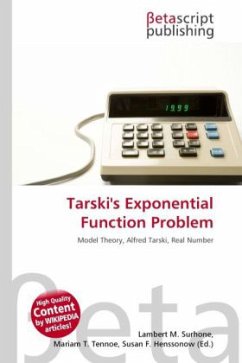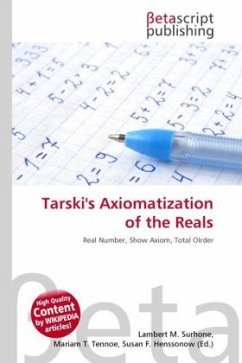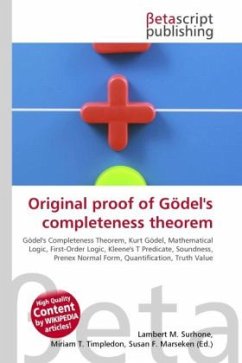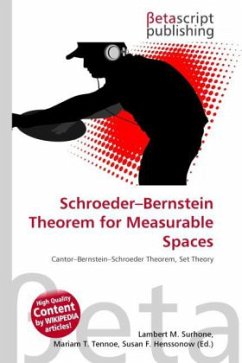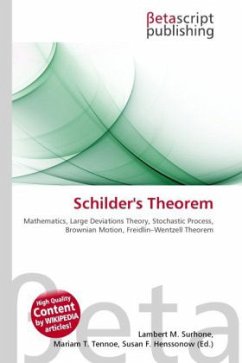
Tarski's Undefinability Theorem
Versandkostenfrei!
Versandfertig in 6-10 Tagen
26,99 €
inkl. MwSt.

PAYBACK Punkte
13 °P sammeln!
High Quality Content by WIKIPEDIA articles! In 1931, Kurt Gödel published his famous incompleteness theorems, which he proved in part by showing how to represent syntax within (first-order) arithmetic. Each expression of the language of arithmetic is assigned a distinct number. This procedure is known variously as Gödel-numbering, coding, and more generally, as arithmetization. In particular, various sets of expressions are coded as sets of numbers. It turns out that for various syntactic properties (such as being a formula, being a sentence, etc.), these sets are computable. Moreover, any c...
High Quality Content by WIKIPEDIA articles! In 1931, Kurt Gödel published his famous incompleteness theorems, which he proved in part by showing how to represent syntax within (first-order) arithmetic. Each expression of the language of arithmetic is assigned a distinct number. This procedure is known variously as Gödel-numbering, coding, and more generally, as arithmetization. In particular, various sets of expressions are coded as sets of numbers. It turns out that for various syntactic properties (such as being a formula, being a sentence, etc.), these sets are computable. Moreover, any computable set of numbers can be defined by some arithmetical formula. For example, there are formulas in the language of arithmetic defining the set of codes for arithmetic sentences, and for provable arithmetic sentences.



